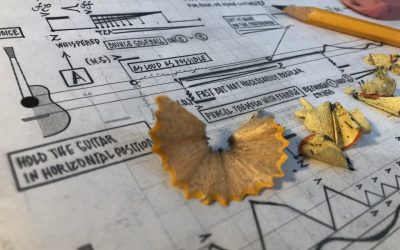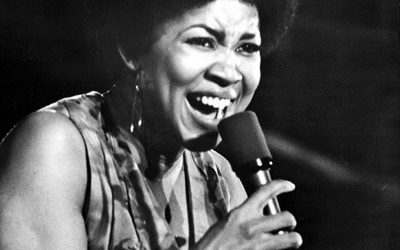Performance, activism and decolonization
In conjunction with the Society of Ethnomusicology Annual Meeting, The University of New Mexico John Donald Robb Trust, and the SEM Latin American and Caribbean Music Section presents a pre-conference symposium on Wednesday, Nov. 14 at the Hotel Albuquerque. The theme will be “Decolonizing strategies in ethnomusicology, teaching and performance: Perspectives from the U.S. Southwest and Latin America.”
In conjunction with the Society of Ethnomusicology (SEM) Annual Meeting, The University of New Mexico John Donald Robb Trust, and the SEM Latin American and Caribbean Music Section presents a pre-conference symposium on Wednesday, Nov. 14 at the Hotel Albuquerque. The theme will be “Decolonizing strategies in ethnomusicology, teaching and performance: Perspectives from the U.S. Southwest and Latin America.”
This topic will address decolonization not only as a concept, but most importantly how it is realized in practice. Decolonization is an ongoing project, with the complexities and tensions of the word, and the different epistemologies produced when used in different languages. By bringing together a group of scholars, pedagogues, activists and creative artists from across Latin America and the U.S. Southwest, participants plan to engage in a hemispheric conversation, taking into account multiple perspectives, in which putting epistemological and performative decolonialities into practice might lead to a more just society.
During the day there will be a roundtable centered on disciplinary decolonizing strategies followed by two short sessions – the first focusing on decolonizing pedagogies and the second on performance and activism.
The symposium will conclude with Música del Corazón: Una velada nuevomexicana (Music from the Heart: An evening of New Mexican music). This music event will include a vast array of new and old music and genres, with ballads both medieval and modern, an ever-evolving lyric tradition, hybrid Indo-Hispano music and an archaeology of vogues from 18th century court music to locally adapted música ranchera and evolving strains of pop.
This velada, sponsored by the UNM John Donald Robb Trust, is curated by UNM Emeritus Enrique Lamadrid, and will take place at the beautiful National Hispanic Cultural Center at 7:30 p.m. Emeritus Enrique Lamadrid and Ana Alonso-Minutti from UNM will moderate the concert. By looking at history, culture, artistic techniques and intersectionality, a deeper understanding of this compelling music can be gained.
All activities within the Nov. 14 pre-conference symposium are free of charge and open to the public, and the full SEM schedule will be available online. http://www.indiana.edu/~semhome/2018/pdf/SEM%202018%20Pre-Conference%20Symposium%20Program%20091718.pdf
SEM conference is Nov. 15 – 18, at Hotel Albuquerque. Registration required.
Details for the evening concert are available at www.robbtrust.org.
Music, Emotion and Fish with Dr. David Bashwiner Part 2
Music, Emotion and Fish with Dr. David Bashwiner Part 2 We are back, with Part 2 of ‘Music, Emotion, and Fish’. If you haven’t had the chance to listen to Part 1, you can click back to Episode 15, Dr. David Bashwiner was just getting to his work on the Midshipman...
Dr. José Luis Hurtado awarded prestigious Guggenheim Fellowship
Composer and pianist José Luis Hurtado, an associate professor in The University of New Mexico’s Department of Music in the College of Fine Arts, is one of the 2020 winners of the prestigious Guggenheim Fellowship.
You Can’t Tell It Like I Can: Black Women, Music, and the Struggle for Social Justice in America
This lecture/performance explores how black women have used music as a method of shaping the public rhetoric and sentiment surrounding the black civil rights struggle in America. Through a historical framework that moves through the height of the abolitionist movement, the Popular front during the 1930s and 1940s, the frontlines of the direct action campaigns of the 1960s, and the proliferation of the Black Power movement in the 1970s.



